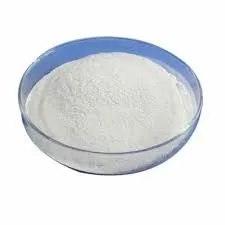
dec . 27, 2024 09:47 Back to list
uses of hydroxypropyl methylcellulose
Uses of Hydroxypropyl Methylcellulose
Hydroxypropyl methylcellulose (HPMC) is a versatile, semi-synthetic polymer derived from cellulose, the most abundant organic polymer on Earth. Due to its unique chemical properties and ability to form gels and films, HPMC has found extensive applications in a variety of industries. This article explores the diverse uses of HPMC, highlighting its significance in pharmaceuticals, food and beverage, construction, and personal care products.
1. Pharmaceutical Applications
HPMC is widely used in the pharmaceutical industry, primarily as a binder and film-forming agent in tablet formulations. Its ability to enhance the solubility of active pharmaceutical ingredients (APIs) makes it an essential component in controlled-release medications. By manipulating the viscosity and gel-forming properties of HPMC, formulators can create tablets that dissolve over extended periods, ensuring a sustained therapeutic effect in the body.
Moreover, HPMC is used in ophthalmic solutions as a lubricant to relieve dryness and irritation in the eyes. Its biocompatibility and non-toxic characteristics make it an excellent choice for eye care products. Additionally, HPMC serves as a stabilizer in various intravenous (IV) solutions, helping maintain the formulation's integrity and effectiveness.
2. Food and Beverage Industry
In the food industry, HPMC is prized for its thickening, emulsifying, and stabilizing properties. It is commonly used in gluten-free and low-calorie products as a substitute for gluten, providing structure and texture to baked goods. Its water-retention capabilities are beneficial in maintaining moisture in various food products, enhancing shelf life without compromising quality.
HPMC is also utilized as a food preservative due to its ability to regulate moisture and inhibit microbial growth. Moreover, in the beverage sector, it can be found in certain juice products and sauces, contributing to a desirable consistency and mouthfeel without adding calories. The food-grade quality of HPMC ensures that it is safe for consumption, making it a popular choice among manufacturers aiming to meet health-conscious consumer demands.
uses of hydroxypropyl methylcellulose

3. Construction Industry
In construction, HPMC acts as an essential additive in cement, mortar, and tile adhesives. Its water-retention properties allow for improved workability and extend the open time of these materials, facilitating easier application and reducing the risk of cracking during the drying process. Additionally, HPMC enhances adhesion, ensuring that materials bond effectively.
Furthermore, the use of HPMC contributes to the overall durability of construction materials. When added to formulations, it helps improve the flexibility and strength of the final product, which is crucial in ensuring longevity and resistance to environmental factors. The construction industry’s reliance on HPMC has grown, particularly in the production of high-performance building materials.
4. Personal Care Products
HPMC is prevalent in the personal care industry, where it is used in a wide range of products, including shampoos, conditioners, and gel formulations. Its thickening and stabilizing properties enhance the texture of these products, ensuring consistency and user satisfaction. HPMC also acts as a film former, providing a gentle coating to the skin or hair, which helps in retaining moisture and enhancing overall appearance.
In addition to its functional properties, HPMC is valued for its hypoallergenic nature, making it suitable for sensitive skin formulations. Therefore, it is commonly found in lotions, creams, and ointments that aim to soothe and hydrate without causing irritation.
Conclusion
In conclusion, hydroxypropyl methylcellulose is a multifunctional agent with a vast array of applications across various industries. Its unique properties facilitate its use as a binder in pharmaceuticals, a thickening agent in food products, an additive in construction materials, and a stabilizer in personal care items. As industries continue to innovate and evolve, the demand for HPMC is likely to increase, reflecting its vital role in modern formulations and products.
-
Versatile Hpmc Uses in Different Industries
NewsJun.19,2025
-
Redispersible Powder's Role in Enhancing Durability of Construction Products
NewsJun.19,2025
-
Hydroxyethyl Cellulose Applications Driving Green Industrial Processes
NewsJun.19,2025
-
Exploring Different Redispersible Polymer Powder
NewsJun.19,2025
-
Choosing the Right Mortar Bonding Agent
NewsJun.19,2025
-
Applications and Significance of China Hpmc in Modern Industries
NewsJun.19,2025







